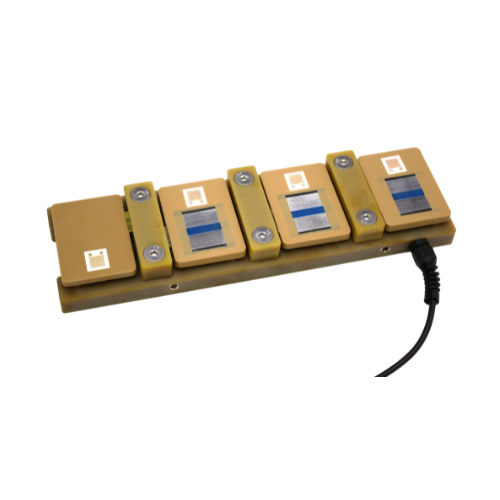LabroTek provides state-of-the-art corrosion sensors that deliver accurate, real-time measurement of corrosion rates in both controlled test environments and field service conditions. Our comprehensive range of Acuity corrosion sensors enables continuous monitoring, automated data collection, and detailed analysis of material performance under corrosive conditions.

Real-time corrosion rate measurement during accelerated testing:
Continuous corrosion surveillance in service environments:
Our specialists help you identify the ideal equipment for your specific applications and requirements
Professional setup and comprehensive operator training to ensure optimal performance from day one
Dedicated assistance throughout your equipment's service life, including troubleshooting and updates
Regular service programs to maintain accuracy, compliance, and maximize operational uptime
Our corrosion sensor systems represent industry-leading measurement technology, providing:
Continuous monitoring and instant detection of corrosion onset and progression
Self-powered corrosion sensors with wireless connectivity for remote installations
Suitable for laboratory chambers, outdoor exposure sites, and service environments
Automated logging, analysis, and reporting of corrosion behavior over time
Corrosion sensors designed to support ASTM, ISO, NACE, and other international testing standards
Corrosion sensors are advanced monitoring devices that measure real-time corrosion rates by detecting changes in electrical resistance as metal corrodes. They provide continuous data on material degradation, enabling early detection of corrosion and accurate assessment of protective coating performance. The sensors can be deployed in test chambers for controlled experiments or in field environments for long-term infrastructure monitoring.
ES corrosion sensors are designed for laboratory use in corrosion test chambers, providing precise measurements during accelerated testing. LS sensors are engineered for long-term autonomous monitoring in service environments and field installations. CR sensors offer versatility for both laboratory chambers and outdoor exposure sites. Each sensor type is optimized for its specific application while maintaining the same high level of measurement accuracy.
Acuity corrosion sensors provide highly accurate measurements with resolution down to nanometer-scale metal loss detection. They can measure corrosion rates from less than 0.1 micrometers per year to several millimeters per year, making them suitable for both slow atmospheric corrosion and aggressive industrial environments. The continuous measurement capability eliminates the uncertainty associated with traditional weight-loss methods.
Yes, corrosion sensors are available in various metal alloys to match your application requirements, including carbon steel, stainless steel, aluminum, copper, and zinc. Using corrosion sensors made from the same material as your test specimens or monitored assets ensures the most relevant and representative corrosion data for your specific application.
Battery-powered autonomous corrosion sensors like the LS and CR models can operate continuously for several years depending on data logging frequency and environmental conditions. They feature low-power wireless connectivity for remote data access and can send alerts when predefined corrosion thresholds are reached, making them ideal for infrastructure monitoring and long-term exposure studies.
Corrosion sensors provide comprehensive data including instantaneous corrosion rate, cumulative metal loss, time-to-failure predictions, and corrosion behavior trends. The accompanying software enables data visualization, statistical analysis, and report generation. This information helps optimize protective coating formulations, validate accelerated test protocols, and plan maintenance schedules for infrastructure assets.
Yes, ES corrosion sensors are designed for easy integration with most standard corrosion test chambers including salt spray, cyclic corrosion, and humidity cabinets. They can be installed alongside traditional test specimens, providing real-time corrosion data to complement visual inspections and weight-loss measurements. LabroTek can assist with integration planning and corrosion sensor placement optimization.
Corrosion sensors require minimal maintenance. The sensing elements naturally corrode during use and should be replaced periodically depending on corrosion rates and test duration. For field-deployed corrosion sensors, periodic checks of battery status, wireless connectivity, and physical condition are recommended. LabroTek offers calibration verification services and replacement sensing elements to ensure continued measurement accuracy.